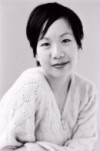Today, I’m participating in a blog tour at the invitation of writer Karen Dodd, who also lives on what Vancouverites call the North Shore. This usually means that we have to drive over to Vancouver to visit friends, who are reluctant to travel to our side of town. Karen lives even further west than I do, in Lions Bay, where she often sees dolphins frolicking in Howe Sound. Maybe that’s why she’s written such a thrilling debut novel, Deadly Switch. Karen has passed on four questions for me to answer.
What am I working on?
I’m fascinated by walled cities like London and Avignon. Although London’s wall has been destroyed, except for a few traces, Avignon’s still encircles the historic city. After I finished writing Muse, I started thinking about London again. I picked up after the Great Fire of 1666, where Conceit ended, and began reading into the next century. Some amazing things were happening in early 18th-century London. I’m particularly interested in the literary authors, the booksellers, the printers, and the Grub Street hacks, who were paid for their writing by the page. In Queen Anne’s reign, the seeds were sown for the greatest works of Augustan literature. I’m at an early stage, so can’t say much more at this point, except that I am excited about completing a first draft so that I can see how the story comes together.
How does my work differ from others of its genre?
My fiction inhabits that generous and elastic genre of novels set in the past. I have also written contemporary stories. Each book I write is different from the last. Within historical fiction there’s a lengthy continuum, from more traditional writers like Philippa Gregory to experimental authors like Annabel Lyon and Michael Ondaatje. Hilary Mantel’s Booker win for Wolf Hall broke down preconceptions about historical fiction and opened the field for some very original books, like Eleanor Catton’s The Luminaries. Today literary authors often play around with genres such as the mystery or the thriller, so can’t be pigeonholed into categories. The best novels are unique and use what I’d call organic form. Each book finds its own structure in an organic way. This is what is happening with my in-progress novel. It’s growing its own shape as it evolves.
How does my writing process work?
I usually begin by obsessing about a particular historical place and its writers, for instance John Donne’s London or Francesco Petrarch’s Avignon. From that comes a plot idea and other characters, some historical, some fictional. Early in the process, I have to determine who the best storyteller is. That gives me the point of view. That’s such an important decision that if I get it wrong I have to back up, erase, and start again. The story comes alive when the characters begin to talk to one another and we get a sense of personality, conflict, and motivation.
Why do I write what I do?
I feel a compulsion to write a particular story. It begs to be told. Once it’s got a grip on my imagination, it gnaws at me, eats away at me, until it’s been set down on paper. Then I read it, reimagine it, and rewrite it. This happens over and over through successive drafts until I feel it’s done. I show it to a few trusted readers, such as my husband and my writing partners, to see if it’s ready to be shown to my agent and editor. My agent might have a few suggestions, but the real work is with my editor at Doubleday. I put it through several more drafts with my editor’s help until the manuscript is complete and ready for the copyeditor.
Passing on the torch
I’ve tagged two of my favourite writers to answer these four questions on their own blogs on July 21. Jen Sookfong Lee–who may live on “the other side” but is still one of the good guys–is a member of SPiN, my novelists’ writing group, which also includes June Hutton. Jen, who kibitzes cleverly about books on CBC radio, is the author of The End of East and The Better Mother, two novels from Knopf Canada, as well as the YA novel, Shelter. Eric Brown–who used to live on the North Shore, but has absconded to East Van under the disguise of E.R. Brown–is the author of the crime novel, Almost Criminal, which was recently shortlisted for the Arthur Ellis Award. Better than that, it was nominated for the prestigious Edgar Award in the US in the same category as Stephen King’s latest. Way to go, Eric!
If you are enjoying this blog hop, please shout and tweet the links so that we can reach other readers and spread the word about our novels. Word of mouth is so important, and we really appreciate any help you can give us!



